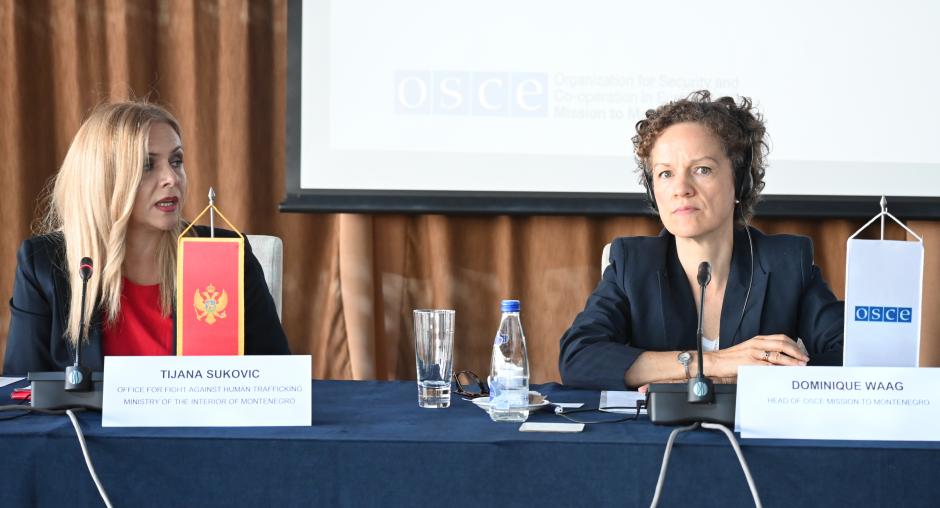OSCE Mission to Montenegro organizes regional conference on countering online child exploitation

Participants of a two-day regional conference “Countering online Child Exploitation in Southeast Europe”, organized by the OSCE Mission to Montenegro on 5 and 6 September 2022 in Budva, shared approaches and experiences and committed to improve their regional co-operation in providing an effective response to online sexual exploitation of children.
The conference was organized with the support of the office of the Special Representative and Coordinator for combating trafficking in human beings and the International Centre for Missing and Exploited Children (ICMEC) based in the United States, and in partnership with the Montenegrin Ministry of Interior and the Police Directorate.
Around 50 delegates from police services and cyber-crime units, prosecutors and members of NGOs from Albania, Bosnia and Herzegovina, Bulgaria, Hungary, Montenegro, North Macedonia, Romania, Slovenia, Turkey and USA presented their countries’ experiences and discussed how to address critical gaps in protection of children against online sexual exploitation, strengthen the regional response and assess training and capacity building needs.
Opening the conference, Head of the OSCE Mission, Dominique Waag, said we must renew our strong commitment to ensure that children everywhere enjoy a safe childhood.
“As the internet’s reach expands, so do the threats and dangers children experience online. Social media platforms can be misused to groom children who may be subjected to sexual exploitation as well as all forms of child trafficking. Sexual exploitation of children can result in serious, lifelong consequences for the physical and psychological development and well-being of a child. An effective response to online exploitation of children requires co-operation amongst the police, judiciary, and prosecutors, as well as with civil society, teachers and parents. It also requires an improved regional co-operation and better ways to share data,” said Ambassador Waag, adding that these crimes involve in many cases organized crime groups.
Tijana Šuković, Head of the Department for Combating Human Trafficking in the Montenegrin Ministry of Interior, said that the Ministry has been clearly committed to fight against all forms of abuse of children, as well as discovering and sanctioning those who threaten their rights. “Most often, the problems related to the misuse of social networks are related to the appearance of child pornography. Bearing in mind that people are trafficked, among other things, for pornographic purposes, it is important to pay due attention to the misuse of technology by human traffickers,” said Šuković.
Guillermo Galarza Abizaid, Vice President of the ICMEC, said that online child sexual exploitation is a global crime affecting millions of children daily. “Law enforcement, the tech industry, NGOs, and others are crucial in the fight against online child sexual exploitation. Developing partnerships with critical stakeholders is essential, and we must continue to address policy, legislation, prevention, awareness and trainings for crucial personnel and all relevant parties,” said Abizaid, adding that regional events are essential to learning from one another. “It takes a network to defeat a network,” concluded Abizaid.
Ivana Popović, senior police officer in the Sector for combatting high-tech crime in the Police Directorate, said that not only in Montenegro, but elsewhere, the age of children who actively use social networks is getting lower. “Children aged eight and older have already entered the virtual world, presenting themselves older than they are. Most of them want to dislocate from the reality, which makes them an easy target for predators. In most cases, parents do not even know that their child has an account on any of the social networks, nor are they aware of the correspondence in which their children participate. It is important that parents talk to their children and report suspicious cases to the police immediately, so that more serious consequences are avoided,” said Popović.
In 2013, the OSCE participating States committed to train law enforcement officials, and other relevant officials regarding the use of the Internet for human trafficking and related crimes, including all forms of child trafficking and sexual exploitation of children.
